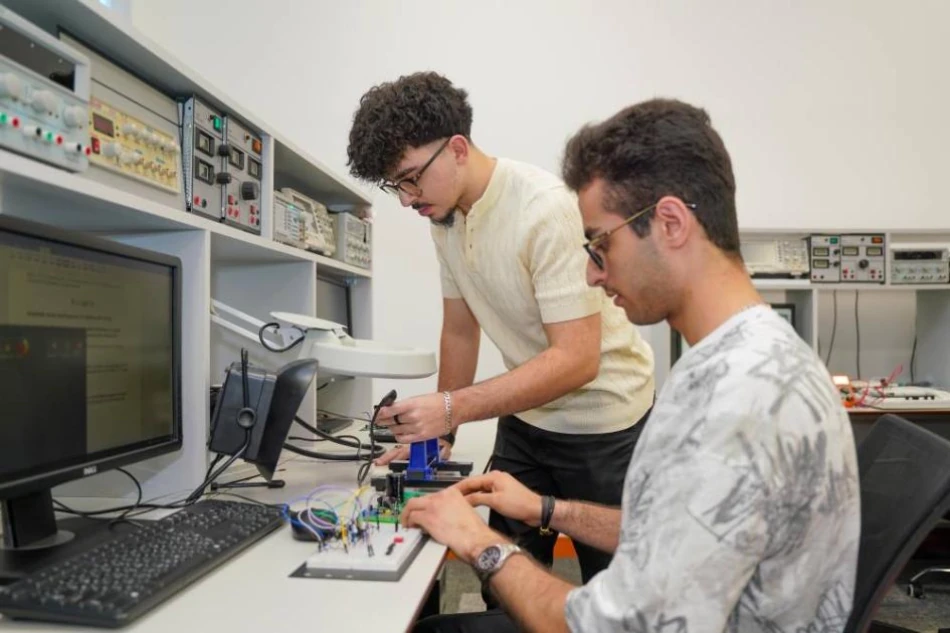
Dubai Future Foundation Invests in 3 Pioneering University Projects
UAE Positions Itself as Global Healthcare Innovation Hub with AI-Powered Medical Research
The UAE is accelerating its transformation into a leading healthcare technology destination, with researchers from the Canadian University Dubai securing three major grants from the Dubai Future Foundation to develop cutting-edge medical solutions. These projects, spanning AI-powered dementia detection, advanced biological imaging, and digital health assessment systems, signal the Emirates' strategic push to rival established medtech hubs like Singapore and Switzerland.
Dementia Detection: Racing Against a Growing Crisis
Professor Firuz Kamalov is leading the most ambitious of the three projects: an explainable artificial intelligence system for early dementia detection and progression forecasting. This initiative, supported by partnerships with Abu Dhabi School of Management and the University of Huddersfield, addresses a critical healthcare challenge as the Middle East faces an aging population.
The timing is strategic. The global dementia care market is projected to reach $2.8 trillion by 2030, with early detection technologies representing the fastest-growing segment. Unlike black-box AI systems that provide diagnoses without explanation, this "explainable AI" approach will allow doctors to understand the reasoning behind predictions—a crucial factor for regulatory approval and clinical adoption.
Market Implications for Healthcare Technology
Early dementia detection systems have attracted significant venture capital investment globally, with companies like Neurotrack and MindMaze raising hundreds of millions. The UAE's entry into this space, backed by government funding and international partnerships, positions it to compete with established players in the US and Europe while serving the underrepresented Middle Eastern market.
Revolutionary Biological Imaging: Bridging the Nano-Scale Gap
Dr. Haitham El Masry's project represents a more technical but equally significant breakthrough. His team is developing enhanced Volume Electron Microscopy (VEM) processing capabilities in partnership with Shandong University and Mohamed bin Zayed University of Artificial Intelligence—a collaboration that spans three countries and highlights the UAE's growing role as a research connector.
VEM technology reveals biological structures at nanometer precision, creating detailed 3D maps of cellular components. The current bottleneck lies in processing the massive datasets these microscopes generate. El Masry's team aims to create rapid, reliable workflows that can handle large-scale analysis—potentially revolutionizing drug discovery and disease research.
Competitive Positioning in Biotechnology
This positions the UAE to compete with established biotech imaging hubs like Boston and Basel. The technology has immediate applications in cancer research, where understanding cellular structure changes can lead to new treatment approaches. For investors, this represents the UAE's move beyond oil-dependent industries into high-value biotechnology sectors.
Digital Health Assessment: Building Infrastructure for Evidence-Based Medicine
The third project, led by Dr. Mohamed Al-Khalidi from the College of Health and Psychological Sciences, focuses on creating a comprehensive Health Technology Assessment (HTA) system for the UAE. This initiative, involving researchers from McGill University in Canada and the University of Bonn in Germany, addresses a fundamental challenge in modern healthcare: determining which medical technologies provide genuine value.
HTA systems evaluate the clinical effectiveness, cost-effectiveness, and broader impact of medical technologies before they're adopted by healthcare systems. Countries with robust HTA frameworks—like the UK with its NICE system or Germany's IQWiG—typically achieve better health outcomes per dollar spent.
Strategic Healthcare Planning
By developing its own HTA system supported by AI-powered web platforms, the UAE is building the infrastructure needed to make evidence-based healthcare decisions. This is particularly important as the country expands its healthcare sector and positions itself as a medical tourism destination competing with Thailand, Singapore, and Turkey.
Broader Implications for the UAE's Innovation Strategy
These three projects reflect a coordinated strategy to establish the UAE as a healthcare innovation hub. The Dubai Future Foundation's funding approach—supporting diverse but complementary research areas—mirrors successful models from Singapore's Agency for Science, Technology and Research (A*STAR) and Israel's innovation ecosystem.
The international partnerships embedded in each project are particularly noteworthy. By connecting UAE researchers with institutions in Canada, Germany, China, and other countries, these initiatives create knowledge networks that extend far beyond the immediate research goals.
Investment and Economic Impact
For the broader economy, these projects represent the UAE's transition toward a knowledge-based economy. Healthcare technology is a sector where early movers can establish significant competitive advantages, particularly in serving regional markets across the Middle East and Africa.
The focus on explainable AI and evidence-based assessment systems also positions the UAE to meet increasingly stringent regulatory requirements in global markets, potentially making it an attractive base for international healthcare technology companies seeking regulatory-friendly environments with strong research capabilities.
According to Dr. Adam Fennick, Academic Vice President at the Canadian University Dubai, these projects contribute directly to the UAE's strategic vision of becoming a global leader in healthcare and wellness—a vision that appears increasingly achievable as these research initiatives move from concept to implementation.
Most Viewed News

 Omar Rahman
Omar Rahman






